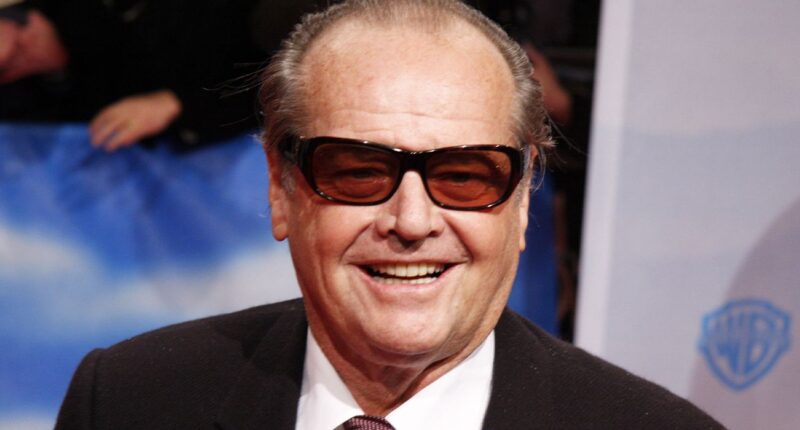Jack Nicholson received many accolades over the course of his impressive career, and for good reason. He’s just one of three male actors to win three Oscars and the only one, other than Michael Caine, to receive Academy Award nominations in every decade from the ‘60s through to the 2000s. One of these nominations comes from Bob Rafelson’s 1970 road movie Five Easy Pieces. In the film, Nicholson embodies Bobby Dupea, an oil field worker hiding his wealthy background. Bobby struggles with his identity. The collision between his past and present anchors the film’s narrative. His past is full of ambition. He dreamed of becoming a classical pianist, but his alienation from a section of his family led him to an unexpected simple life. Nicholson’s performance is top-tier, aligning with Rafelson’s authentic and minimalist lived-in direction. Five Easy Pieces shows why the ‘70s golden era of character-driven cinema was so powerful. Like Martin Scorsese’s Taxi Driver and its Travis Bickle, Five Easy Pieces immerses us in Bobby’s devastating journey of disillusionment.
‘Five Easy Pieces’ Is a Raw Portrait of a Man Unraveling
The film promises to be a road movie, but unlike most road narratives that deliver discovery and redemption, the road that the film’s protagonist takes only leads back to himself. Rafelson, who’s had fun with a minimalist approach to his filmmaking, takes an observer’s role in capturing Bobby’s journey. He delivers a lived-in portrait of Bobby, capturing his day-to-day activities with remarkable authenticity. Rafelson makes us observe the events unfold as Bobby refuses to invest emotionally in his relationship with his girlfriend, Rayette Dipesto (Karen Black, in an Oscar-nominated performance). We see this in how he treats her day-to-day, both at home and in public, like during dates with their friends. This approach lends our ears to Bobby without judgment. We listen to his hurt, which he communicates through his words and his volcanic rage.
Estranged from his ailing father, Bobby is convinced by his sister to visit him and try to patch things up. Through that visitation, Rafelson lays bare the identity crisis his protagonist experiences. On the one hand, Bobby’s presence at home gives him a glimpse of the man he used to be. There are some beautiful moments, like him teasing his brother Carl (Ralph Waite) and playing the family piano. But then Rafelson quickly reminds us that we are watching a man who’s going through turmoil. Bobby’s jabs at his brother soon begin to sound stale and mean, and when he explosively crosses the line with Carl’s girlfriend Catherine (Susan Anspach), it confirms everything we already knew about Bobby. He’s an outsider in both his worlds. Back at home, he is restless and disillusioned by his family’s refinement. Across the land, he is inherently too privileged to appreciate the simplicity of the oil fields and his girlfriend, Rayette. He is simply in an identity crisis.
Jack Nicholson Is a Damaged Soul in ‘Five Easy Pieces’
Nicholson may be better known for the manic grin he brought to the Joker and the rage with which he embodied Jack Torrance in The Shining. But it is through Five Easy Pieces that he laid the groundwork for the corrosive side to his antihero characters that we have come to know. To physically paint his haunted picture for us, Nicholson coils his shoulders and often darts his eyes across the room as if looking for exits. He runs away from the slightest confrontations. His detachment from the world around him can be seen in how he is cold toward Karen Black’s devoted Rayette. When Rayette sings Tammy Wynette’s hit song to impress him, his gaze drifts past her. The film doesn’t give us any indication that he hates her. He is torn between the simplicity of her world and the privileged background he’s trying to bury.
In a memorable performance, Nicholson demonstrates his acting chops in the now-famous diner scene. “You want me to hold the chicken, huh?” the waiter (Lorna Thayer) says after getting infuriated by Bobby’s insistence. Bobby’s unforgettable response crowns the scene: “I want you to hold it between your knees.” Nicholson starts clipped, almost polite. His voice frays with each rebuff until it climaxes in the venomous spill that is supported by the moment he knocks the utensils off the table. The toast that he ordered is just a metaphor for his life. Just like he tries to outsmart the waitress and find a solution for the rigid menu, his life demands solutions from a rigid system. His outbursts and anger stem from these failed systems.
As Bobby Dupea, Nicholson defined his future roles. His sharp and restless loner persona that barely masks a well of pain was born in Bobby. Nicholson’s performance in Five Easy Pieces echoes in every lost soul he’d play after.
Five Easy Pieces is available to rent or purchase on VOD services.
Five Easy Pieces
- Release Date
-
August 28, 1953
- Runtime
-
118 Minutes
- Director
-
Fred Zinnemann










